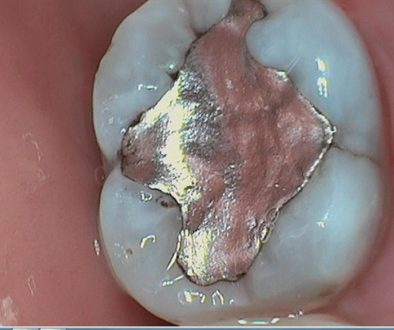In Network vs Out of Network Dentists
 There is a lot of confusion about how in network dentists work vs out of network dentists. What are the pro’s of and con’s of using one vs the other? Do you get better service at out of network? I’m going to try answer all of your questions here.
There is a lot of confusion about how in network dentists work vs out of network dentists. What are the pro’s of and con’s of using one vs the other? Do you get better service at out of network? I’m going to try answer all of your questions here.
In Network Vs Out of Network Dentists
In-Network Dentist
- Sign a contract with the insurance that dictates how much they can charge and dictates specific rules that they must “play” by.
- Will bill your insurance.
- You are financially responsible for the contracted amount between your dentist and the insurance company. The specifics depend heavily on your dental plan (which is usually selected by your employer). Your dentist contractually must charge the amount specified in the contract and can’t go up or down.
- Are vetted by the dental insurance companies to make sure there isn’t a history of malpractice or other adverse events.
Out of Network Dentist
- No contract with your insurance company.
- Most will bill your insurance company for you while some will make you pay the entire fee up front.
- You are responsible for the difference between their full fee and what your insurance pays.
Typical Examples
Example #1: Cost for a cleaning
In network: Covered 100% by your insurance. Total cost to you $0.
Out of network: Your insurance pays $50 and your dentist’s full fee is $55. Total cost to you is $5.
Example #2: Cost for a filling
In network: Covered 80% by your insurance. Contracted rate of $100 for that specific filling. Your insurance pays $80 and you pay $20.
Out of network: Your insurance covers 80% of their usual rate and you the pay the rest up to the full fee. If the dentist’s fee is $150 your insurance will pay $80 and you will pay $70.
Example #3: Cost for a crown
In network: Covered 50% by your insurance. Contracted rate of $800 for a crown. Your insurance pays $400 and you pay $400.
Out of network: Your insurance covers 50% of their usual rate and you pay the rest up to the full fee. If the dentist’s fee is $1000 your insurance will pay $400 and you will $600.
We could go on and on with the examples. These are just some of your most likely costs and examples of how a typical dental insurance plan will pay. Not all insurance plans work in this way and may have deductibles, waiting periods, and other exceptions that allow them to pay less or not at all. When in doubt, expect them to pay less than they say they will.
Commonly Asked Questions
Why don’t some dentist’s participate with my plan?
Dentist’s take an enormous hit financially to be in network with a dental insurance plan. On average they only receive 50-70% of their full fee when contracted with a dental insurance company. They do this in exchange for the dental insurance company listing them as in network (and thereby they get new patients). If a dentist has high business overhead, this reduction in revenues can be the difference between making money and losing money.
Do you get better service at an out of network dentist?
This is a hard one to say for sure. The quality of each dentist’s work can vary quite dramatically. I can say that a dentist is out of network for most dental plans SHOULD have more time for each patient. If you’re seeing an out of network dentist and don’t feel like you’re getting top-notch service, it is time to find another dentist. An in network dentist on the other hand will usually need to see more patients in a given time frame in order to make enough money to pay the bills. If you’re seeing an in network dentist, you may have longer wait times and may not receive quite as personalized service. This is often the price to pay for a lower cost. If you’re lucky enough to find an in network dentist who provides excellent service and takes their time, make sure you stay with them.
Why are so few specialists in network?
There are fewer dental specialists than there are general dentists. This means that there is less competition and less incentive to be in network with any dental plans.
Does my in network dentist know all the specifics of my dental plan because they are in network?
Most definitely not. Even with the best insurance verification it is only possible to estimate what your insurance will cover. This is because your dental insurance contract is usually a multi-page book that only you and the insurance company have access to. In many cases there are a huge variety of limitations and exceptions that your dentist can’t possibly know about. Make sure you know what kind of coverage you have so you can make informed decisions at the dentist.
Is it legal for my dentist to charge additional for certain services?
This one can only be answered with a big “it depends”. An out of network dentist can generally charge whatever they like to whomever they like (within state and federal law). An in network dentist must follow state and federal laws as well the specific dictates of their contract with their contract with the insurance company as well as your specific dental plan. Some plans allow for additional fees for certain services while others don’t. Some of the more common (legal) additional fees include those for white fillings (instead of amalgam), more advanced orthodontic options (such as Invisalign or clear brackets), or better materials for making crowns, partials, or dentures.



